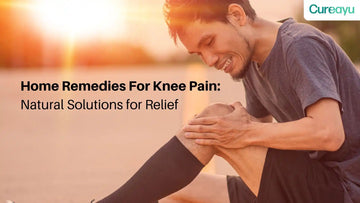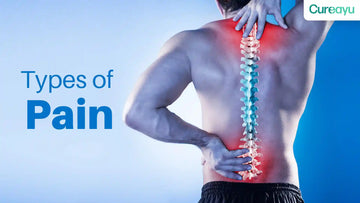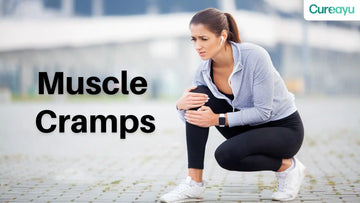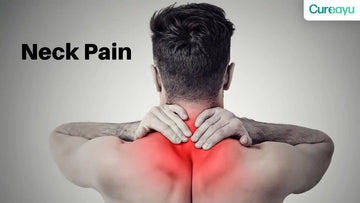Knee pain is a common issue that affects people of all ages. Whether it's due to an injury, arthritis, or just the wear and tear of daily activities, knee pain can be debilitating and impact your quality of life. While medical treatments are available, many people prefer to explore home remedies that can provide relief without the need for pharmaceuticals or invasive procedures. In this blog, we will explore various home remedies for knee pain, understand the main culprits behind this discomfort, and discuss lifestyle changes that can help alleviate the pain.
Understanding the root cause of knee pain is crucial for effective treatment. From injuries and medical conditions to lifestyle factors, there are numerous potential sources of knee discomfort. By identifying these causes, we can better address the pain through targeted home remedies and lifestyle adjustments. Let's delve into the primary causes of knee pain and explore how you can manage and reduce this discomfort at home.
Also Read: Osteoarthritis Meaning: Essential Knowledge for Managing Joint Health
Main Culprits of Knee Pain
- Injuries: Injuries such as torn ligaments, meniscus tears, and fractures can lead to significant knee pain. These injuries often result from sports activities, accidents, or sudden movements that strain the knee.
- Arthritis: Osteoarthritis and rheumatoid arthritis are common culprits of knee pain. These conditions cause inflammation, stiffness, and degeneration of the knee joint, leading to chronic pain.
- Overuse: Repetitive activities or overuse of the knee joint can cause pain. This is often seen in athletes or individuals whose jobs require frequent kneeling or squatting.
- Bursitis: Inflammation of the bursae, small fluid-filled sacs that cushion the knee joint, can result in knee pain. This condition, known as bursitis, is often caused by repetitive movements or prolonged pressure on the knee.
- Tendinitis: Tendinitis is the inflammation of the tendons around the knee joint, often resulting from overuse or improper use of the knee. This can cause pain and discomfort, especially during movement.
How To Cure Knee Pain At Home
- Ice Packs: Applying ice packs to the affected area can help reduce inflammation and numb the pain. Use an ice pack wrapped in a cloth and apply it for 15-20 minutes several times a day.
- Compression: Using a compression bandage or knee brace can help stabilize the knee joint and reduce swelling. Ensure the bandage is snug but not too tight to avoid restricting blood flow.
- Elevation: Elevating the knee above the level of your heart can help reduce swelling. Use pillows to prop up your knee while resting.
- Heat Therapy: Applying heat to the knee can help relax the muscles and improve blood flow. Use a warm towel or heating pad for 15-20 minutes a few times a day.
- Gentle Exercise: Engaging in low-impact exercises such as swimming, walking, or cycling can help strengthen the muscles around the knee and improve flexibility. Avoid high-impact activities that can strain the knee.
Also Read: Understanding Joint Pain: Causes, Treatments, and Ayurvedic Solutions
Lifestyle Changes For Knee Pain Relief
- Weight Management: Maintaining a healthy weight reduces the pressure on your knees, helping to alleviate pain. Aim for a balanced diet and regular exercise to keep your weight in check.
- Footwear: Wearing supportive and comfortable shoes can help reduce strain on your knees. Avoid high heels and opt for shoes with good arch support.
- Posture: Maintaining good posture while standing, sitting, and walking can help reduce knee pain. Ensure your body weight is evenly distributed and avoid slouching.
- Stretching: Incorporating regular stretching exercises into your routine can help improve flexibility and reduce knee pain. Focus on stretching the muscles around the knee, such as the quadriceps and hamstrings.
- Diet: A diet rich in anti-inflammatory foods such as fruits, vegetables, and omega-3 fatty acids can help reduce inflammation and knee pain. Avoid processed foods and sugary drinks.
Best Knee Pain Remedy
When looking for the best remedy for knee pain, it's essential to consider a holistic approach that combines multiple treatments for optimal results. Here are some highly effective remedies:
- Turmeric and Ginger Tea: Both turmeric and ginger have powerful anti-inflammatory properties. Drinking turmeric and ginger tea can help reduce knee pain and inflammation. Boil a cup of water, add half a teaspoon of turmeric and ginger, and let it simmer for 10 minutes before drinking.
- Epsom Salt Bath: Soaking in an Epsom salt bath can help relax the muscles and reduce knee pain. Add two cups of Epsom salt to a warm bath and soak for 20 minutes.
- Apple Cider Vinegar: Apple cider vinegar can help reduce knee pain by alkalizing the body and reducing inflammation. Mix two tablespoons of apple cider vinegar in a glass of water and drink it daily.
- Massage: Regular massage with essential oils such as peppermint or eucalyptus oil can help improve blood circulation and reduce knee pain. Gently massage the knee for 10-15 minutes daily.
Also Read: Everything You Need to Know About Back Pain Causes, Symptoms, and Treatments
Knee Pain Treatment
When it comes to finding a comprehensive knee pain solution, it's important to consider both immediate and long-term treatments. Here are some effective treatments.
- Physical Therapy: Physical therapy can help strengthen the muscles around the knee and improve joint stability. A physical therapist can design a personalized exercise program to address your specific needs.
- Acupuncture: Acupuncture is an ancient Chinese treatment that involves inserting thin needles into specific points on the body. It can help reduce knee pain by promoting blood flow and releasing endorphins.
- Herbal Supplements: Herbal supplements such as turmeric, ginger, and boswellia can help reduce inflammation and knee pain. Consult with a healthcare professional before starting any new supplement.
- Knee Injections: In some cases, injections such as corticosteroids or hyaluronic acid may be recommended to reduce knee pain and inflammation. These injections can provide temporary relief and improve joint function.
- Surgery: In severe cases, surgical options such as arthroscopy or knee replacement may be necessary to treat knee pain. Consult with an orthopedic surgeon to discuss the best options for your condition.
Conclusion
Knee pain can be a challenging condition to manage, but with the right home remedies and lifestyle changes, it's possible to find relief and improve your quality of life. By addressing the main culprits of knee pain and incorporating natural treatments into your daily routine, you can reduce discomfort and enhance knee joint health. Remember to consult with a healthcare professional before starting any new treatment or exercise program, especially if you have a pre-existing condition. With a proactive approach and a combination of effective remedies, you can take control of your knee pain and enjoy a more active and pain-free life.












